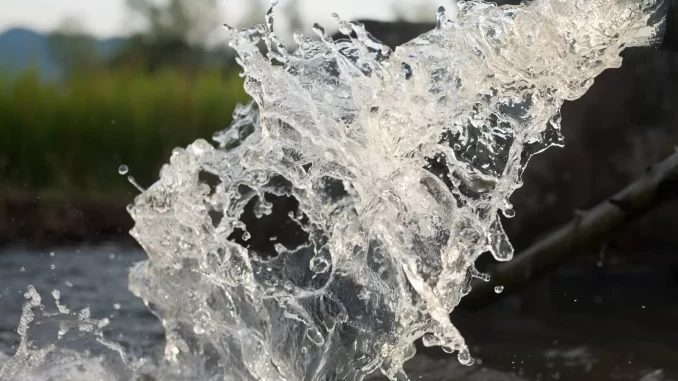
A Long Island think tank has issued a report providing information it claims every resident should be aware of before considering an increase in the sales tax in Suffolk County to construct sewers in the county.
The measure proposes to increase the Suffolk County sales tax to fund sewers on the theory that sewer construction will provide cleaner drinking water.
The think tank, however, concludes that over-sewering can do more harm than good and that, in any event, the county is flush with cash left over from federal COVID aid, thereby obviating the need for a sales tax increase.
The Center for Cost Effective Government, headed by Executive Director Steve Levy, the former Suffolk County executive and state assemblyman, issued a detailed report noting that, while sewers may be needed in some areas with high water tables or where higher density is needed for workforce housing and industrial development, extensive sewer development to mirror that in Nassau County may be wasteful and counterproductive.
Levy stated, “If building sewers led to cleaner drinking water as some proponents claim, Nassau County, which is 90% sewered, would have cleaner water than Suffolk, but that is not the case. In fact, Nassau just completed a study in 2022 looking for ways to tap into New York City’s reservoir for a cleaner, more plentiful water supply.
“Moreover, sewers did not improve our shellfishing harvest or prevent algae blooms. If they did, shellfish harvesting would be robust in Nassau County and absent in Suffolk. However, there is little shellfishing going on in Nassau, with the exception of the Oyster Bay area, which, ironically, is the one area of Nassau not sewered.”
The analysis states that too much sewering leads to a depletion of the water table since sewers require a tremendous amount of ground water to clean waste. That water is flushed out into the ocean and not replenished into our groundwater system, as is the case with septic systems. That, in turn, leaves a gap in our subsurface water which can result in saltwater intrusion, as well as nitrate contaminants on the surface being quickly drawn down into our aquifer.
The think tank also urged that the county should not be raising the sales tax any further for these purposes when hundreds of millions of dollars are available in county reserves due to massive amounts of COVID aid that came from the federal government.
The center also called for a reconfiguration of the present county sales tax program, rather than raising the sales tax once again.
The think tank also warned residents that the sales tax increase is tied to a provision that will also further extend the present quarter-penny sales tax for another 30 years – despite the fact that this program does not expire for six more years.
The current quarter-penny sales tax is divided into three sections: property tax relief, stabilizing sewer rates, and preserving open space and other environmental purposes.
Since very little open space remains to be purchased, the center has called for the formula to be changed so that some of those tens of millions of dollars can go towards sewer construction instead of raising the sales tax even further.
Levy added: “This proposal sounds like mom and apple pie, but its premise is based on a falsehood that more sewers means cleaner drinking water, and it’s just not backed up by the evidence. Sewers are needed in areas with exceptionally high-water tables or where more density is needed for more workforce housing or for our downtowns or industrial corridors, but the idea of over-sewering elsewhere will be far more expensive and less protective than other options available.”
The equilibrium of the water flow is disturbed by sewer construction, said the report.
The center calls upon officials to weigh out the cost-benefit analysis of having to pay $20,000 to 30,000 for an upgraded cesspool compared to bringing current systems up to code and to determine the actual impact it will have on our environment. Planners should lay out the cost of the construction of tertiary treatment plants and determine if they are better than expanding hookups to present sewer systems or constructing new sewers that don’t resplendent water into the aquifer.
“Let’s get all those numbers together, do a comparison and then decide how much sewering we want, how many new tertiary plants we prefer and how many super-size cesspools we think are worth it,” said Levy.
“Get that info in hand before we ask for billions of dollars in more revenue from our residents. Remember, in 1986, it was touted that by increasing the sales tax by a quarter of a penny, we would preserve our groundwater forever. Well, $3 billion has been spent on that venture and now we’re being told, ‘Oops, we have to do it all over again.’”
The Center for Cost Effective Government is a think tank dedicated to exposing wasteful government spending and educating the public on various measures that can control taxing and spending for the purpose of creating more hospitable conditions for taxpayers and the business community. www.centerforcosteffectivegovernment.org

